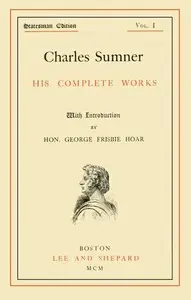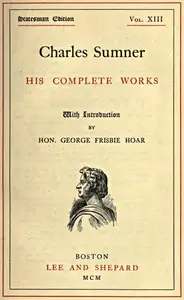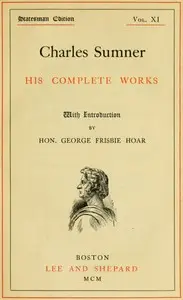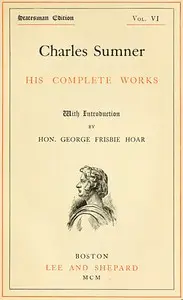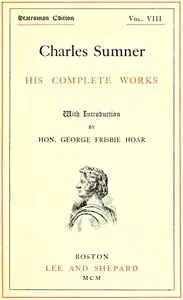"Charles Sumner: his complete works, volume 20" by Charles Sumner is a historical account written in the late 19th century. This volume is part of a comprehensive collection of Sumner's speeches, remarks, and writings, primarily focused on political and social reform during a pivotal time in American history. The content discusses various topics such as civil rights, government integrity, and international relations, reflecting Sumner's significant role in 19th-century American politics. At the start of this volume, the reader is introduced to Sumner's insights and arguments presented in the Senate regarding the apportionment of representatives among the States and the importance of maintaining an ethical government amidst rising concerns over corruption. He eloquently defends the necessity for appropriate representation and highlights the duties of neutrality expected from the United States in regards to arms sales during foreign conflicts, prompting a call for inquiry into potential abuses. This opening portion establishes a foundational understanding of Sumner's advocacy for reform and integrity in governance that permeates throughout his work. (This is an automatically generated summary.)
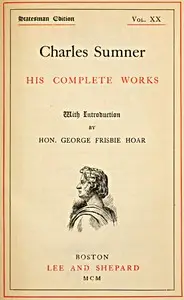
Charles Sumner: his complete works, volume 20 (of 20)
By Charles Sumner
"Charles Sumner: his complete works, volume 20" by Charles Sumner is a historical account written in the late 19th century. This volume is part of a c...
Charles Sumner was an American lawyer, politician, and statesman who represented Massachusetts in the United States Senate from 1851 until his death in 1874. Before and during the American Civil War, he was a leading American advocate for the abolition of slavery. He chaired the Senate Foreign Relations Committee from 1861 to 1871, until he lost the position following a dispute with President Ulysses S. Grant over the attempted annexation of Santo Domingo. After breaking with Grant, he joined the Liberal Republican Party, spending his final two years in the Senate alienated from his party. Sumner had a controversial and divisive legacy for many years after his death, but in recent decades, his historical reputation has improved in recognition of his early support for racial equality.

